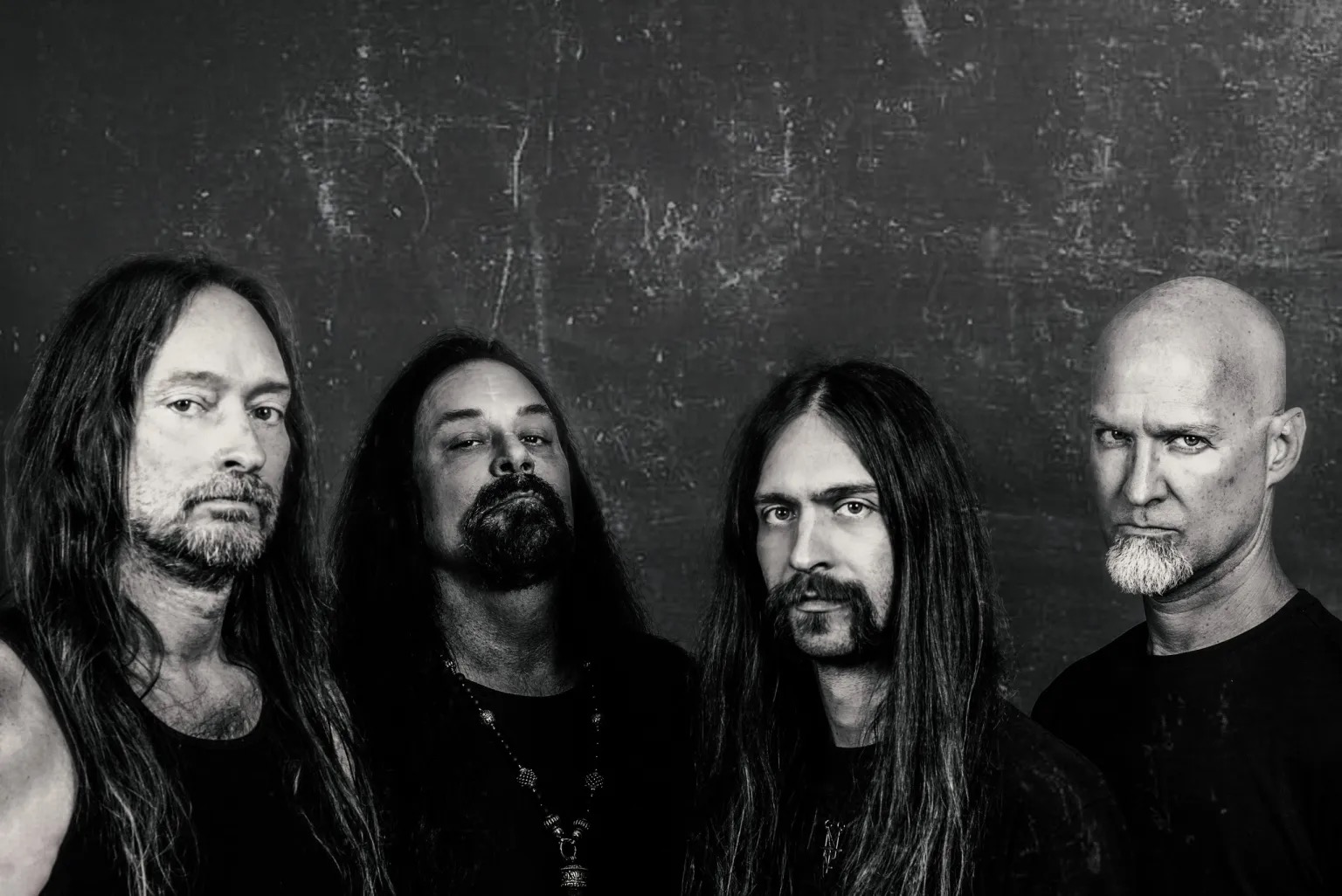
A band with the dubious honour of having been the first Italian artist to release an album encoded in Dolby Surround, Deviate Ladies (later rechristened Deviate Damaen) are difficult to define and run rampant across genres, even within the course of a single track, let alone across the course of an album. In Sanctitate, Benignitatis Non Miseretur! Is the band’s fifth album, and it is every bit as eclectic as its antecedents, resulting in an album that touches a lot of bases, without ever really offering enough in the way of continuity to fully engage the listener.
Opening with the lengthy, creeping horror of L’Angelo Preferito, Il Primo Insorto, Il Più Antico Dannato (Intro), the album conjures up a remarkable feeling of desolate horror as overlapping voices spill over choral music in a manner reminiscent of The Exorcist. Hardly musical in any conventional sense, the emphasis on atmosphere extends into a patience-sapping excursion that feels like someone placed a microphone in front of a television set, the dark soundtrack lacking the cohesion that a visual narrative might bring. As such, it’s a huge relief when Tethrus emerges as an actual musical composition, built around the strains of a gothic organ and intoned at a deathly pace reminiscent of early My Dying Bride with hints of Thergathon thrown in for good measure. Unfortunately the vocals, delivered as Mike-Patton-does-Danzig, alongside the occasional scattershot horror FX undermine the atmosphere that might have been built off the back of the opening track, suggesting that the band aren’t entirely sure whether to play it straight or tongue-in-cheek, the resulting contradictions left unreconciled at the track’s conclusion. That’s not to say that there aren’t moments of absolute brilliance amidst the musical mayhem, it’s rather that they never seem to extend effectively, the band too eager to explore new avenues at every opportunity rather than hone fewer ideas to a sharper point. Another ten-minute epic awaits in Sacre Gesta Cavalcano Il Metallo / Heilige Taten Reiten Das Metall, a track that offers up another minute or so of spoken word weirdness before kicking into a metal riff that’s more Motorhead than MDB, the awkward neo-classicisms of the vocals standing at odds with a brilliant riff that sets the adrenalin flowing in spite of the band’s over-the-top approach and a bizarre segue into Rammstein territory (no, really!) Somewhat shorter, Santo Frà Diavolo, Spara Per Noi! Opens with the sound of a baying mob before transmuting into straight up folk-opera. The band riff on that for a few minutes before unleashing their inner, death-metal demons and the resulting clash of styles is given free reign for the remainder of the runtime (a brief segue back to the mob notwithstanding), outstaying its welcome somewhat in the process. Another lengthy track, Aspetterò L’Altrove sees the band perform another stylistic volte-face, slowing the tempo and briefly engaging with a moment of ethereal beauty before once again referencing Rammstein, albeit at their most restrained, with a post-punk edge.
Another sound collage awaits the listener with I Tarocchi Della Vostra Sfiga – six minutes of largely pointless sound effects that pave the way for Font near the ossuary, a blackened-doom monstrosity that hints at Celtic Frost and emerges as the album’s best track as a result. A short, doom-laden piece in the vein of Vangelis gone rogue, it’s hard not to wish that more pieces on the album had the atmospheric depth of Fratelli D’Occidente, Salviamo Noi Stessi Dall’Estinzione! Equally, the short Signore E Dio In Te Confido has the feel of a vintage horror soundtrack, expertly played and it paves the way for the album closer, L’Urlo Del Cappuccino, which essentially comprises the horrifying sound of a milk steamer ramped up to endurance levels through the mixing desk. Undoubtedly it seemed like a good idea at the time.
Throughout the record, there’s a feeling that the band deserve credit for their ambitious, multi-faceted approach but, at the same time, they urgently need tighter self-editing skills. Moments of brilliance are left underdeveloped whilst scattershot ideas are developed well beyond tolerance (witness the opening and closing numbers as an example) and the overall result is a hodgepodge of ideas, only loosely stitched together and often irritatingly inchoate. It’s well recorded and there’s no question that some talented musicians lurk at the heart of this album, but the overall feeling is of an opportunity wasted and it’s hard to imagine all but the most diligent of fans giving this more than a cursory spin. 5










Leave a Reply